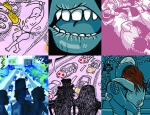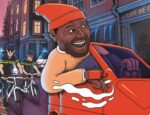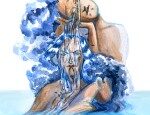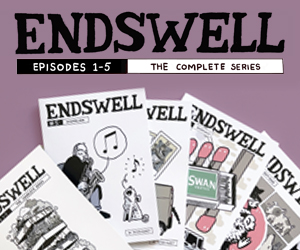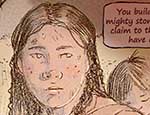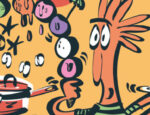Imagine a world where your very existence singled you out for persecution? A world where your guilt was always assumed even if your innocence was obvious and apparent? A world where the authority figures who should be there to protect you are instead there to victimise you? A world where as a child your life may be in jeopardy just for playing with a water pistol? If this sounds alien to you then it’s likely you are sitting in the middle of the same central circle in the Venn Diagram of privilege that I too inhabit. But it’s a world that Darrin Bell brings all too vividly to life in the pages of his graphic memoir The Talk.
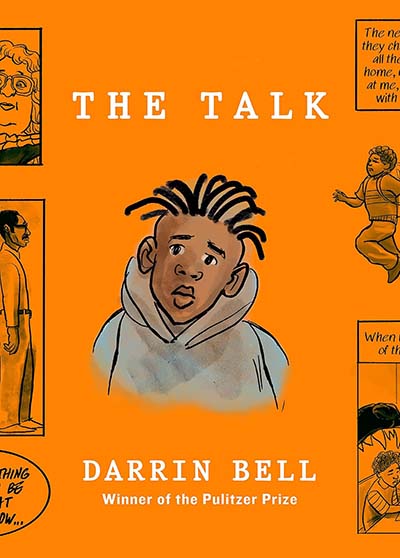
Bell was the first African American to win the Pulitzer Prize for editorial cartooning and the route ino that career is detailed in these pages. The talk of the title is one that his mother has with him early in the book when she turns down his request for an authentic-looking water pistol. Instead she buys him a more obviously toy green one. Seeking to justify this to her six-year-old son she has to explain that, even as a child, possessing a toy gun could prove fatal. From Darrin’s child’s eye view of the world this seems inconceivable. But a subsequent encounter with a police officer soon proves the wisdom of her words.
It’s a pattern that will repeat itself as he grows up. Being picked out by white teachers, accused of misconduct by white university tutors, pulled over in traffic by white police officers… all of it coming from the same root of prejudice, whether it be overt or implicit. As the years progress we observe Bell’s burgeoning career as a political and newspaper cartoonist interlaced with key moments of injustice towards the Black community, providing a wider running commentary on The Talk‘s themes. In one particularly poignant sequence we see Bell coming to terms with the realisation that a cartoon of his pertaining to 9/11 had helped re-enforce the same prejudicial attitudes that he himself has faced all his life.
Comics as a form, as we inevitably come back to here at Broken Frontier again and again, are a remarkable medium for bringing us so deeply into the lived experiences of others, and The Talk communicates the everyday reality of Black lives in the US with a powerful eloquence. Bell’s cartooning bursts with sheer humanity and a gift for visual characterisation that adds layer upon layer to our emotional connection with the page. It’s a book that is undeniably incisive, on occasion witty despite the bleakness of its subject matter, and always unforgettable in its raw and uncompromising delivery. That its finale circles back round to the events of its opening pages with a generational inevitability only underlinines just how vital its message is.
Darrin Bell (W/A) • Jonathan Cape/Henry Holt, £25.00
Review by Andy Oliver







